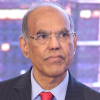Krishan Gopaul
Senior Analyst, EMEA World Gold CouncilCentral banks maintain interest in gold in July
Today we’ve published our latest central bank statistics which now includes data for July. Central banks added a net 30.1 tonnes (t) to global official gold reserves during the month, virtually in line (+0.3%) with net purchases in June. This continues the healthy level of interest in gold we have seen from central banks so far this year.
Krishan Gopaul
Senior Analyst, EMEA World Gold CouncilChanging ECB strategy could be supportive for European gold investment
In a move which brings it closer in line with the US approach, the European Central Bank (ECB) has decided to adopt the tolerance for inflation overshooting its target. What does this mean for European investors, who have been watching the wrangling within the ECB over the direction of monetary policy for months now?
John Reade
Senior Market Strategist, Europe and Asia World Gold CouncilWatch: Spotlight on Alternatives webinar
Shaokai Fan
Head of Asia Pacific (ex China) & Global Head of Central Banks World Gold CouncilCentral bank gold buying gathers steam
As Krishan Gopaul’s blog post last week pointed out, central banks have been buying gold during the first four months of 2021. Over that period, we estimate that the official sector has added 150-200 tonnes of gold.
Qixiu Tay
Former Manager, Central Banks & Public Policy World Gold CouncilIntroducing our Central Bank Dashboard
The World Gold Council is launching the Central Bank Dashboard, an innovative web-based tool that allows the comparison of central bank gold reserve holdings across regions, income levels, foreign exchange arrangement and other qualitative and quantitative indicators.
The Central Bank Dashboard provides users with the flexibility to visualise trends in gold and foreign exchange reserve holdings across a multitude of vantage points.
Andrew Naylor
Head of Middle East and Public Policy World Gold CouncilBasel III and the Gold Market
As Basel III comes into force, we look at the impact of the Net Stable Funding Ratio (NSFR) on the gold market.
There has been much debate about the implications of Basel III on the bullion industry. What is clear is that the under the current rules the cost to banks of holding gold on balance sheet will increase – the NSFR requires 85% of required stable funding.
Krishan Gopaul
Senior Analyst, EMEA World Gold CouncilHow is central bank demand faring against our expectations?
We have written before about how, after a more inconsistent picture for central bank demand in the second half of 2020, our expectation was for continued net purchases in 2021 but at a more moderate pace than in previous record-setting years. So, how is that expectation holding up?
Shaokai Fan
Head of Asia Pacific (ex China) & Global Head of Central Banks World Gold CouncilCentral bank domestic gold purchase programmes
Dr Tatiana Fic
Director, Central Banks and Public Policy World Gold CouncilCentral and Eastern European central banks significantly expand their gold reserves
Last month Hungary tripled its gold reserves. The decision by the National Bank of Hungary (Magyar Nemzeti Bank, MNB) to increase its gold reserves to 94.5 tonnes, a historic high, follows a 10-fold increase in Hungary’s gold holdings in the last quarter of 2018.


























































